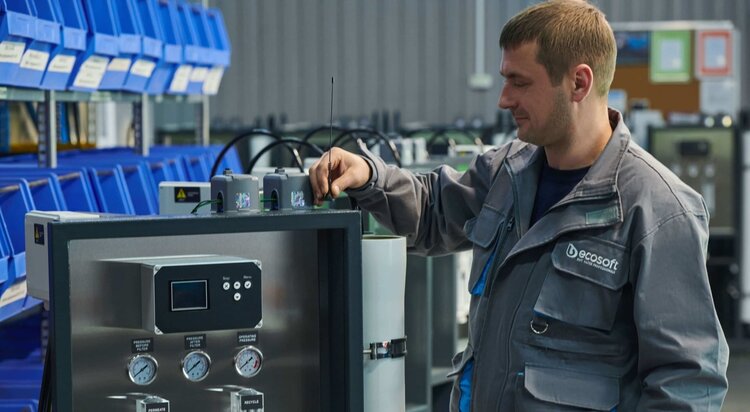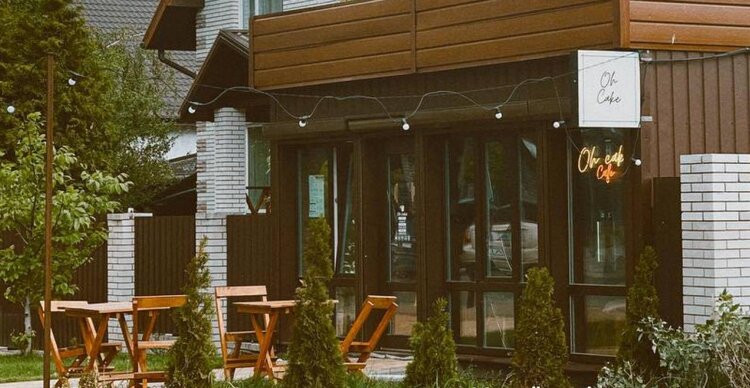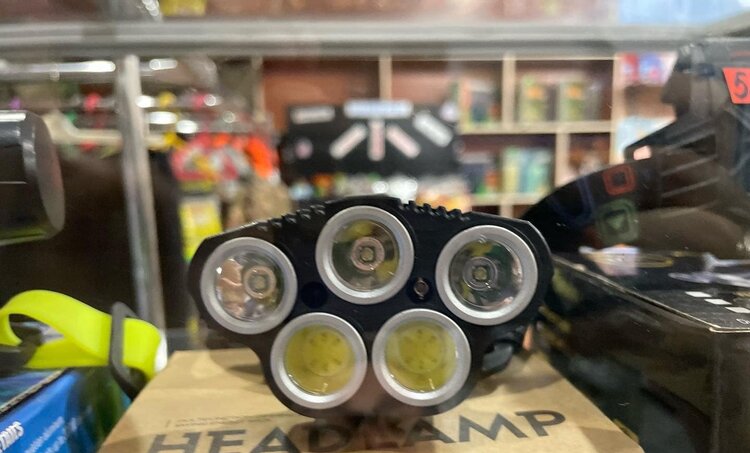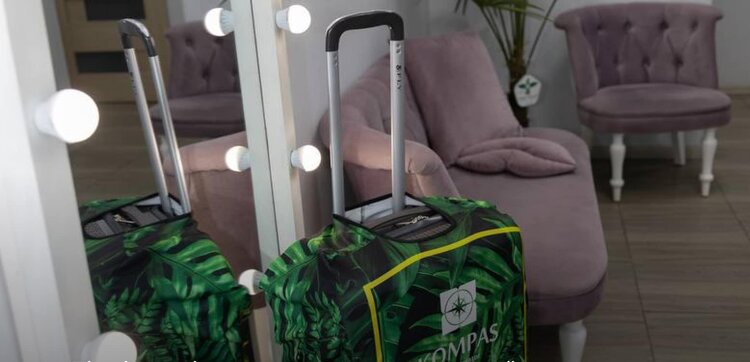"Drinking coffee in Bucha was something from the pre-war times": How small business is recovering after the occupation in Kyiv Oblast
What it costs for entrepreneurs to return to the capital's suburbs and what difficulties they face

The Diya.Business Centre in Bucha opened in December 2021. Before the outbreak of war, this centre had received almost a thousand visitors, processed more than 665 appeals and provided more than 50 consultations with roadmaps created for entrepreneurs. However, a few months later, during the full-scale russian invasion, Bucha came under occupation.
The Diya.Business Centre itself was damaged as was the entire residential area around it. So after the liberation of Kyiv Oblast, it worked online, resuming full reception of visitors in late September. Mind spoke to businessmen it met at the reopened centre to find out how they managed to re-establish business in Bucha and Irpin towns.
Ecosoft Company (production of water-purification systems)

During the entire existence of Ecosoft, the company had to go through two relocations: when Russia attacked Ukraine, it evacuated to Ternopil, and then, after de-occupation, it returned to Irpin.
"In the first days of the full-scale war, we realised that we had to leave the place. Unfortunately, the equipment was left here in Irpin, and the team moved to Ternopil, where we rented premises and were able to establish the production of key products," says Yuriy Chechailiuk, the company's chief operating officer.
In April, the employees came back to Irpin and began to assess the damage. Unfortunately, only part of the office building and several auxiliary areas survived from the filter manufacturing plant, office and warehouses. The main production facility was completely destroyed – it simply burned down along with the products.
"When we returned to Irpin, we found a building that was not badly damaged by the hostilities, rented it and began to restore it. We also tried to convert part of our 'pre-war' office premises into production and assessed possibilities of partial restoration of the surviving equipment. In general, the amount of losses is enormous, the bill is tens of millions of dollars," says Yuriy Chechailiuk.
Today, Ecosoft's activity is actually concentrated in Irpin, and we managed to restore almost the entire range of products. But, while before the war there were 400 employees in the team, now there are 150.
Oh Cake Cafe

The location opened in Bucha two years ago, in 2020. But almost immediately had to adapt to the second COVID quarantine – sales were made through a small window. "After the quarantine, we thought that this was the worst thing that could happen to us. However, the war broke out," says founder Darya Bondarenko.
On the first day of the war, they gave people away desserts from the coffee shop, then locked it and hoped that everything would be over in two or three days. "We have a small team – two baristas, me and a kitchen worker. Everyone went to different places, so no one came to work. Personally, I was in Bucha until 9 March and left the occupied city with no idea how to return. Bucha was grey then, everything was burning, it was terrible," she recalls.
However, visitors of the cafe started to write to her – they asked if the cafe would reopen when they had the opportunity. "It was not one or two messages. Almost every day our guests sent photos from their 'past life', and it was very nice," says Darya.
She returned to Bucha on 13 May and opened the coffee shop a week later. The only damage was the door bent by the blast wave. Overall there were not many losses, so the team even decided not to apply for business recovery or compensation.
When the café resumed its work, they added a summer terrace, completely updated the menu and did some redecoration. Now it is only necessary to replace some windows, because one of the glass units is cracked. Also, in the owner’s words, the venue was "a little" robbed – unknown visitors stole electric tiles and decided to try the desserts that were still inside: "We do not know who did it, but we saw sniper bullets inside."
Interestingly, the expensive equipment left inside the coffee shop – the coffee grinder, the filter coffee maker – were untouched.
"I did not estimate the losses specifically, but in fact the amount of damage is the cost of double-glazed windows. My grandparents' apartment in the military town in Gostomel burned down, so the perception of everything is somewhat different for us than for people who came, saw the broken windows and believe that it is a horror," Darya Bondarenko shares her impressions of the experience.
After the resumption of work, it was expected that there would be few visitors. However, the situation was the opposite. People missed the pre-war reality, came and asked immediately: "May we have a cup of coffee? This is something from the past life".
Many guests come just to chat. "I know almost every guest in person – for me, the return was 'as if to my family'. Probably, people have stopped sparing money for what they really want – theoretically speaking, to save for a window, floor or something else, and began to allow themselves more small pleasures," Darya says
According to her, the plans for the future are to expand. Including building a separate confectionery shop which will enable them to hire staff and produce larger output. Also among the plans is to enter Kyiv, but, of course, to keep the coffee shop in Bucha..
Fish 911 fishing equipment shop

The founders, Oleksandr and Kateryna Churilov, left Irpin after the start of the full-scale war – on 24 February. There were four people in their team, one of the employees immediately joined the Armed Forces. In the first days of the war, they helped the Territorial Defence, the Armed Forces of Ukraine – they sent thermal underwear, flashlights, batteries in particular.
They returned to Irpin on 7 April. People immediately began to come to the shop and ask for batteries, thermal underwear, gas bottles, flashlights.
"When we returned, the situation in the town was very hard, there was a lot of ruins. However, if we talk about our business, we got away with only broken windows and roof, so we estimated our losses at a little more than 50,000 UAH. So far, we have not yet completed the repair work," the founders of the store say.
In their words, the demand and goods are getting back. As well as the enthusiasm and optimism of regular customers: "As early as April 11-12, when sappers still had not permitted to go out anywhere, fishermen already came to our store, bought maggots and went fishing. Many people's houses, boats, and garages were burned. However, people come and buy fishing rods – we offer them the goods at cost price. Fishing is sacred."
Tours&Tickets Irpin travel agency

The agency opened in Irpin in 2018. The staff was relatively small – ten people along with IT specialists.
In the first days of the war, employees and their families spent the night in the office because it was scary to be in their apartments. "I personally evacuated on 24 February, because I was seven months pregnant. We had flags of Ukraine and the European Union hanging near the office building. When the war started, my husband took them down and hid them, and we also taped the windows. He went immediately to the Territorial Defence, fought, and, unfortunately, perished", agency founder Maryna Kolesnikova says.
At the beginning of the war, about 70 clients of the agency were "stuck" abroad, mostly in Egypt. Local hoteliers allowed Ukrainian tourists to stay as long as they needed before returning to Ukraine. There were also a lot of tourists in Tanzania and Sri Lanka, and some of them got home on their own.
To help return tourists to Ukraine, partners from Poland joined in – they delivered Ukrainians, for example, from Hurghada, Sharm El Sheikh to Warsaw for free.
"All the people from my team were in Ukraine, and our travel agency re-qualified – we started to do health insurance online. It was important because people were going abroad and needed insurance policies," says Maryna Kolesnikova.
Evacuation flights to Bulgaria started in March, as the local government provided temporary shelter for Ukrainians until 31 May. Most flights to the country were from Lviv via Romania, because it was dangerous to go from Kyiv at that time. The agency even organised its own evacuation flight from Irpin to the hotel in Bulgaria.
The whole team worked online – booking, issuing electronic documents and departing people. "On 1 June, our office started working again and everyone came to work – we began to fully send tourists on vacations. The office itself was not damaged, it was located in the basement. We realized that people need rest, so we resumed our work," Maryna said.
Tourists with children say that they want to live at least a week without air raid alarms, in peace and quiet. Customers say that, for example, when they were swimming in the sea and heard a civilian plane flying, they had tears in their eyes: they wanted such planes to fly in the Ukraine's sky.
"To be honest, we are making plans 'maximum until Friday'. But we will not slow down, but only continue to open new countries."
Gratsiya Dance Centre

Gratsiya is a dance studio network that was originally located in Donetsk Oblast, including towns of Slovyansk, Sviatogirsk, Kramatorsk. In general, there were seven branches, 15 halls with a total area of 2000 square metres and 1100 dancers.
"On 24 February, we closed all our studios and evacuated some of them. A shell flew into the studio in Sviatogirsk, now everything there is broken, in Slovyansk, Kramatorsk studios are in place, but closed. Some premises were used as bomb shelters, and some were occupied by our military," says the owner Oleksiy Ovchinnikov.
In mid-October they opened a studio in Irpin. The idea to move to this town suggested their acquaintance, twice displaced from Donetsk. "We came to Irpin, looked around and decided to stay here because we liked it. We rented premises for a dance studio. Before the opening, we made repairs. In fact, we thought of making a studio in Kyiv, but we analysed the market and saw that many people still returned to Irpin in August-September, so we decided to open a studio in this town," the owner adds.
So far they have just started an advertising campaign, but they already have several clients. A girl from Slovyansk comes to the studio – she came because the studio opened in Irpin.
From the very beginning Gratsiya had 30 coaches. Currently, six people who moved from Slovyansk and Kramatorsk work in Irpin. Some of the coaches are now in Bulgaria, some in Germany, some in Spain – they departed with their children at the beginning of the aggression, and now they are waiting for it to be safe to return.
"In the future we plan to expand our network in Kyiv Oblast and enter Kyiv, but now we need to understand the market and risks," summarises Oleksiy Ovchinnikov.
If you have read this article to the end, we hope that means it was useful for you.
We work to ensure that our journalistic and analytical work is of high quality, and we strive to perform it as competently as possible. This also requires financial independence. Support us for only UAH 196 per month.
Become a Mind subscriber for just USD 5 per month and support the development of independent business journalism!
You can unsubscribe at any time in your LIQPAY account or by sending us an email: [email protected]


